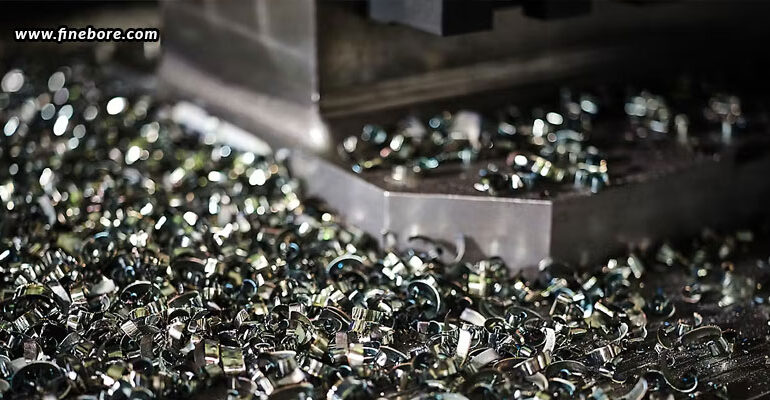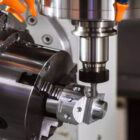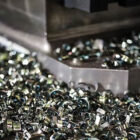In the current manufacturing landscape, sustainability has transitioned from being merely a buzzword to becoming a crucial business necessity. As environmental issues grow and regulations tighten, manufacturers are exploring more intelligent and eco-friendly methods to create high-quality components. Among the various tools that are adapting to these needs, boring bars are emerging as a surprisingly significant asset. Today’s boring bars are not solely focused on creating precise holes; they are leading the charge in green manufacturing by helping in the reduction of material waste, reducing energy usage, and fostering more sustainable machining practices.
How do boring bars help reduce waste?
- Advanced materials and coatings
The longevity of a tool directly influences its sustainability. Today’s boring bars are crafted from high-performance materials like tungsten carbide, which significantly extends tool life and reduces the frequency of replacements. Furthermore, coatings such as Titanium Aluminum Nitride (TiAlN), Titanium Nitride (TiN), and even diamond-like coatings reduce friction, improve thermal resistance, and extend wear life. Fewer tool changes result in lesser downtime, reduced waste, and lowered energy consumption during production.
- Modular and recyclable designs
Another green advancement is the modular design of boring bars. Rather than discarding the entire tool when a component wears out, machinists have the option to replace individual heads or inserts. This design approach greatly minimizes waste and prolongs the overall lifespan of the tool system. Additionally, manufacturers are now investigating recyclable components, utilizing materials that can be reprocessed after their use. This promotes the circular economy model where resources are reused instead of thrown away, completing the sustainability cycle in the machining sector.
- Coolant optimization
Traditional machining often depends on cutting fluids, which can be toxic, hard to dispose of, and costly to maintain. Boring bars are increasingly being adapted to work with minimal quantity lubrication (MQL) or even dry machining methods. These alternatives drastically reduce the amount of coolant required, lowering both environmental impact and cost. Internal coolant channels in modern boring bars deliver precise fluid amounts directly to the cutting edge, which increases efficiency and minimizes excess.
- Precision
One of the most impactful ways that boring bars enhance sustainability is through their precision. Engineered to achieve tight tolerances and exceptional surface finishes, contemporary boring bars significantly reduce the necessity for secondary processes such as reaming or polishing. This not only minimizes scrap production, but also curtails the excessive use of raw materials. The greater the first-pass yield, the more sustainable the operation becomes. By enhancing accuracy and repeatability, boring bars enable manufacturers to utilize precisely what they require, which aligns seamlessly with lean and environmentally friendly manufacturing objectives.
- Energy efficiency
Machining processes are inherently energy-intensive. Nevertheless, boring bars that feature vibration-dampening systems and robust construction enable higher cutting speeds and more stable operations. This results in shorter cycle times and reduced energy consumption for each part produced. Elements such as tuned mass dampers, internal dampening systems, and high-modulus shanks mitigate chatter and vibration, enhancing tool longevity and decreasing the number of rejected parts, all of which contribute to more environmentally friendly practices.
Industry applications of eco-friendly boring bar technology
Eco-friendly machining with boring bars is not confined to a single niche; it is affecting numerous industries.
- Aerospace: Lightweight materials like titanium are machined with minimal waste for components such as turbine parts and structural frames.
- Automotive: High-volume precision boring for engine blocks, gearboxes, and transmission cases benefits from energy savings and waste reduction.
- Medical devices: The requirement for burr-free, ultra-precise small components calls for boring tools that minimize excess material removal.
- Oil & gas: Boring bars utilized in deep-hole drilling and pipe threading are being optimized for recyclability and coolant efficiency.
Each of these industries enjoys lower material waste, enhanced precision, and reduced environmental impacts, all made feasible by advancements in boring tool technology.
FineTech Toolings – Driving sustainable innovation
Prominent boring bar manufacturers in India, such as FineTech Toolings, are playing a significant role in the sustainable manufacturing movement by creating boring bars that fulfil both performance and environmental criteria. By emphasizing high-strength materials, modular adaptability, and intelligent design, FineTech Toolings’ tools are assisting industries throughout India & beyond in minimizing their carbon footprint, while maintaining productivity and quality standards. Their dedication to engineering excellence and sustainable practices positions them as a preferred partner for companies aiming to balance production efficiency with environmental stewardship.
As the manufacturing industry progresses towards automation, digitization, and sustainability, tools like boring bars will prove to be pivotal. Capable of reducing waste, conserving energy, and streamlining processes, boring bars are emerging as more than mere cutting tools; they are becoming strategic assets in sustainable manufacturing. By embracing eco-friendly boring solutions, manufacturers can enhance their profitability while also making a positive impact on the environment.




